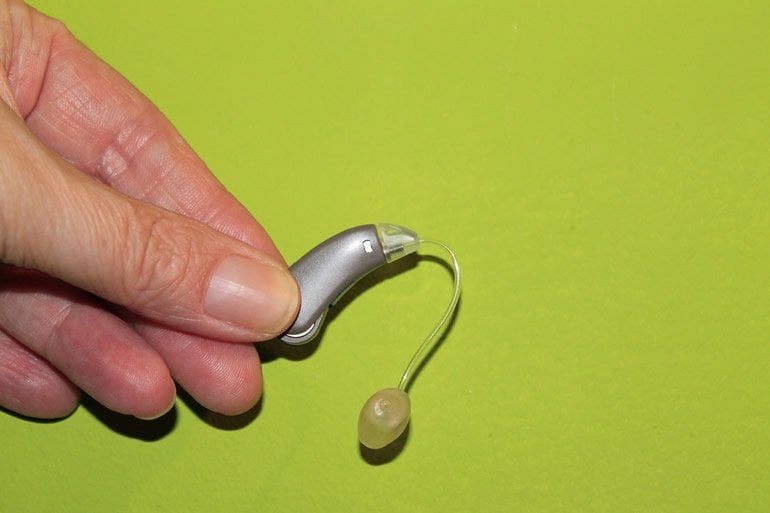Summary: A new study links high-dose opioid use to an increased risk of hearing loss and auditory problems. Researchers believe hearing problems may be a result of toxicity to the ear related to opioid exposure.
Source: Rutgers University
Opioid use, particularly in high doses, can cause deafness, according to Rutgers researchers.
The study, published in The Journal of Medical Toxicology, reviewed records from the New Jersey Poison Control Center, based at Rutgers New Jersey Medical School, from 1999 to 2018 to determine the association between opioid use and degrees of hearing loss.
Researchers identified 41 people with opioid exposure who experienced full or partial hearing loss or tinnitus, likely caused by toxicity to the ear. More than half had used heroin, followed by oxycodone, methadone and tramadol; 88 percent had only one known exposure. Most people reported the condition affecting both ears, with 12 people experiencing deafness, 15 partial or total loss of hearing acuity, 10 tinnitus and four a mix of symptoms.
While some people may regain their hearing, the loss could be permanent with others — 21 percent of those reporting the condition had no improvement in hearing when they were discharged from the hospital. “The delicate structures of the inner ear are very susceptible to injury if oxygen supply is insufficient, as well as to the direct effect of toxins like opioids,” said co-author Lewis Nelson, chair of the Department of Emergency Medicine.
“Although the study found a link with heroin, toxicity to the ear can occur with every opioid,” said Diane Calello, executive and medical director of the New Jersey Poison Control Center. “This study supports what has been found in animal studies, which is that any opioid can cause hearing loss,” she said. “This might be because we already have built-in opioid receptors, or binding sites, in the inner ear. Activating them may trigger this injury in some patients.”

The researchers said health care providers should be aware of the association with opioid use when evaluating a patient with hearing loss.
About this auditory neuroscience research article
Source:
Rutgers University
Contacts:
Patti Verbanas – Rutgers University
Image Source:
The image is in the public domain.
Original Research: Closed access
“Opioid-Associated Hearing Loss: A 20-Year Review from the New Jersey Poison Center” by Alexander M. Mozeika, Bruce E. Ruck, Lewis S. Nelson & Diane P. Calello. The Journal of Medical Toxicology.
Abstract
Opioid-Associated Hearing Loss: A 20-Year Review from the New Jersey Poison Center
Background
Opioid-associated ototoxicity is a known complication of opioid exposure, although the mechanism remains unclear. While historically most closely linked to heroin and oxycodone, evolving reports suggest that it may be a class effect of opioids. However, the evidence is limited to case reports.
Methods
A retrospective review of the New Jersey Poison Center records (ToxiCALL®) identified cases that included both hearing loss and recent opioid exposure between January 1, 1999, and September 21, 2018.
Results
Forty-one cases were identified, mean age 29.4 years, 51% (n = 21) were male. Reported heroin exposures comprised 51% (n = 22), 18 of which were heroin alone. The next most commonly cited opioids were oxycodone (n = 7), methadone, (n = 4), and tramadol (n = 3). Hearing loss was described as tinnitus in 24% of cases, hypoacusis in 37% of cases, deafness in 29% of cases, and mixed tinnitus/hypoacusis in 10% of cases. Only 34% (n = 14) of cases were associated with a potential hypoxic event. Of the cases that documented resolution data, 21% (n = 4 of 19) reported no improvement at time of hospital discharge.
Discussion
Opioid-associated ototoxicity appears to be a hypoxia-independent adverse effect since most of the reported cases did not involve a known contributory hypoxic event. It occurs with a wide array of opioids, which supports an opioid receptor-mediated mechanism. The ototoxic effect may be self-limited in many patients.
Conclusion
Opioid-associated ototoxicity was most commonly associated with heroin exposure and appeared independent of hypoxic events. Further investigation that clarifies the risk factors and long-term outcomes is needed.







